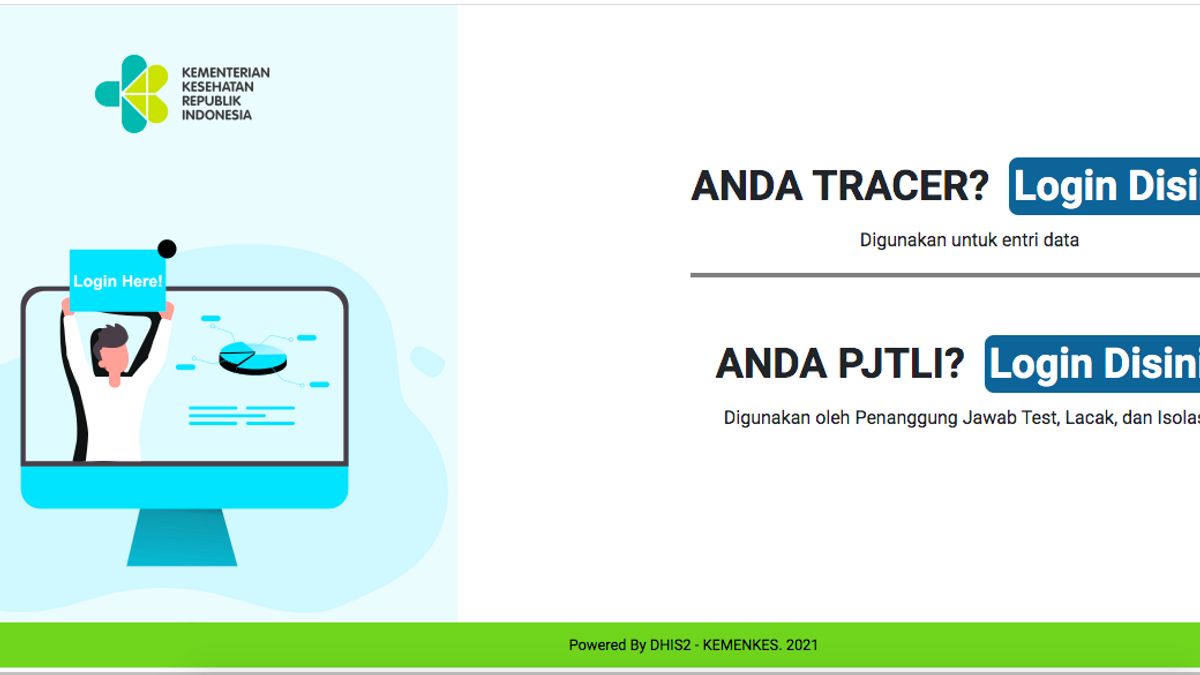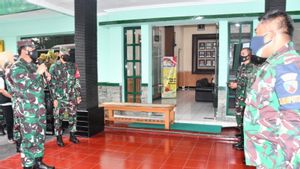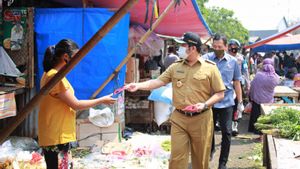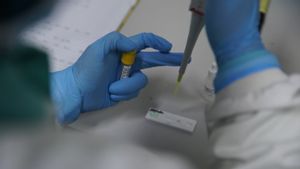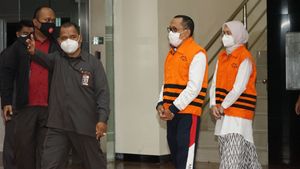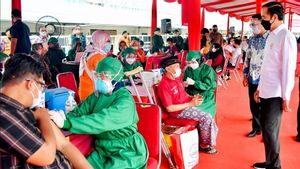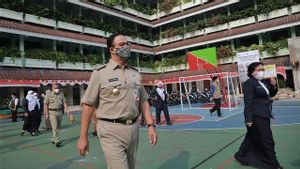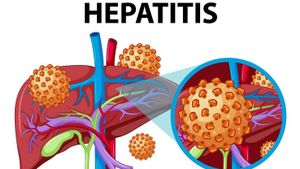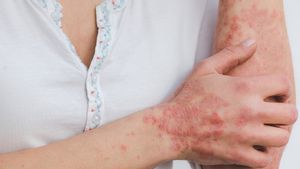JAKARTA - Head of Disease Prevention and Control Division, DKI Jakarta Provincial Health Office, Dwi Oktavia said that there were obstacles in using the Silacak application.
Silacak is an application made by the Ministry of Health (Kemenkes) used to trace close contacts of COVID-19 cases.
Dwi explained that the DKI Jakarta Health Office had trained to do testing and tracing officers throughout the DKI Jakarta Province to immediately enter contact data in an orderly and neat manner into the Silacak system.
However, it turned out that the Silacak application could not enter the data of residents who were included in the close contact category more than once, even though the time was different. Close contact ID Number that has been entered previously cannot be re-entered.
"For example, there is one person who can be in close contact with several people over several periods. However, it cannot be re-entered into the Silacak system", Dwi said in her statement, Friday, September 3.
In fact, according to Dwi, everyone who has had close contact with a COVID-19 case must be recorded as a close contact so that tracing efforts are optimal.
"For that, we will continue to work and coordinate with the Ministry of Health to overcome this", said Dwi.
SEE ALSO:
Furthermore, Dwi said that the DKI Provincial Government had carried out tracing efforts quite well. DKI conducted PCR tests on 6-7 people who had close contacts with COVID-19 cases. However, this figure has not reached the target.
"We will continue to increase the tracking ratio so that it can be above 10 in accordance with the target from the Ministry of Health in the Silacak report", said Dwi.
Then, Dwi said that the positivity rate for COVID-19 specimens in DKI Jakarta as of August 31 was the lowest in Indonesia, at 6.8 percent. The positivity rate is the percentage of positive cases from the total specimen examination.
One of the efforts that support the low positivity rate in Jakarta is the seriousness of the DKI Jakarta Provincial Government in carrying out testing, tracing, and treatment (3T).
"Thank God, the specimen positivity rate in DKI Jakarta has reached 6.8 percent, the lowest in Indonesia based on data from the Ministry of Health. Active cases in Jakarta continue to decline due to the efforts of all parties who collaborate with the DKI Jakarta Provincial Government and provide support in accelerating handling the COVID-19 pandemic in DKI Jakarta", she concluded.
The English, Chinese, Japanese, Arabic, and French versions are automatically generated by the AI. So there may still be inaccuracies in translating, please always see Indonesian as our main language. (system supported by DigitalSiber.id)
